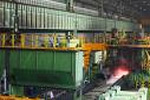Business |
|
Gospodarstvo |
Generation Xers are coming to power

|
|
Generacija X dolazi na vlast

|
Pure greed is being replaced by humanism

|
|
Čista pohlepa se zamjenjuje s humanizmom

|
Financial innovation and its pitfalls will return

|
|
Financijske inovacije i njihove zamke će se vratiti

|
The future of shopping

|
|
Budućnost kupovine

|
Computing |
|
Informatika |
Cloud computing and intelligent personal devices

|
|
Internetski oblak i inteligentni osobni uređaji

|
Information wants-to-be expensive

|
|
Informacije žele biti skupe

|
Ecology |
|
Ekologija |
What is my energy bill spent on?

|
|
Na što se troši moj račun za energiju?

|
More efficiency and productivity with less pollution

|
|
Više učinkovitosti i produktivnosti uz manje onečišćenja

|
|
|
|
|

Generation Xers are coming to power
In the late 1990s and early 2000s, the usual rules of workplace seniority did not seem to apply to workers in their twenties and early thirties. The dotcom boom was empowering this cohort of youngsters - sometimes known as Generation X - to seize states and wealth with astounding precocity. The dotcom bust exposed that trend as an illusion, forcing the upstarts to serve their time in junior roles.
An end to the punishment is in sight, however. Now in their thirties and early forties, many Xers should reach the apex of their power between 2010 and 2020, according to conventional wisdom that suggests white-collar workers peak in their late forties and early fifties (the average FTSE 100 chief executive is 52).
What will this mean for corporate life? Often viewed as ironic and detached, Gen X workers are not the most obvious leaders. But according to Tamara Erickson, author of "What's Next, Gen X", this lack of ideology might be an asset in solving modern challenges...

|
|

Generacija X dolazi na vlast
U kasnim 90-ima i ranim 2000-ima činilo se da uobičajena pravila hijerarhije na radnom mjestu nisu vrijedila za radnike u dvadesetim i ranim tridesetim godinama. Procvat internetskih tvrtki u 90-ima osnažio je ovu grupu mladih vršnjaka - ponekad poznatu kao generacija X - da ovladaju državama i bogatstvom sa zapanjujućom preuranjenom zrelošću. Propast internetskih tvrtki raskrinkala je taj trend kao iluziju, prisiljavajući skorojeviće da odsluže svoju kaznu na nižim funkcijama.
Međutim, čini se da se približava kraj toj kazni. Sada kada su u svojim tridesetima i ranim četrdesetima, mnogi X-ovci bi trebali doseći vrhunac svoje moći između 2010. i 2020., prema općeprihvaćenom mišljenju koje sugerira da uredski radnici vrhunac dosežu u svojim kasnim četrdesetima i ranim pedesetima (prosječni izvršni direktor u 100 najuspješnijih tvrtki Ujedinjenog kraljevstva ima 52 godine).
Kako će ovo utjecati na korporativni život? Često doživljavani kao ironični i povučeni, radnici Generacije X nisu najočitiji vođe. Međutim, prema Tamari Erickson, autorici "What's Next, Gen X" ("Što slijedi, Generacijo X") ovaj manjak ideologije bi mogao biti prednost u rješavanju suvremenih izazova...

|

Pure greed is being replaced by humanism
Back in the 1980s, the economist AJ Rappaport captured the spirit of the times by devising a new goal for the corporation: the maximisation of shareholder value. The measure of a CEO's achievement was the total return achieved for shareholders during his tenure.
Bill Allen, Boeing's legendary leader from 1945 to 1968, once described his company's ethos like this: "To eat, breathe and sleep the world of aeronautics." By 1998, the CEO there saw it differently: "We are going into a value based environment where unit cost, return on investment, shareholder return are the measures by which you'll be judged," said Phil Condit.
This was happening across industries. Britain's ICI offered a lofty description of its ideals in 1987: "ICI aims to be the world's leading chemical company... [enhancing] the wealth and well-being of our shareholders, our employees, our customers and the communities which we serve and in which we operate." But, by 1995, the threat of a hostile bid galvanised the management, and the company declared: "Our objective is to maximise value for our shareholders by focusing on businesses where we have market leadership, a technological edge and a world competitive cost base."
And it happened across borders, too. When John Reed and Sandy Weill, Citigroup's joint chief executives in the late 1990s, described the purposes of the newly merged conglomerate's objectives to a journalist, Reed, the cerebral traditionalist banker, said: "The model I have is of a global consumer company that really helps the middle-class...

|
|

Čista pohlepa se zamjenjuje s humanizmom
U 80-ima, ekonomist AJ Rappaport sažeo je duh vremena osmislivši novi cilj za korporaciju: maksimiziranje vrijednosti za dioničare. Mjera uspjeha direktora bio je ukupni povrat za dioničare tijekom njegova mandata.
Bill Allen, Boeingov legendarni vođa od 1945. do 1968., jednom je opisao etos svoje tvrtke ovako: "jesti, disati i spavati svijet zrakoplovstva." Do 1998., glavni izvršni direktor vidio je to sasvim drugačije: "Ulazimo u poslovno okruženje zasnovano na vrijednostima u kojem su jedinični trošak, povrat od ulaganja i povrat dioničarima mjere po kojima će vam se suditi," rekao je Phil Condit.
To se događalo u svim industrijama. Britanski ICI ponudio je uzvišeni opis svojih ideala 1987. godine: "ICI želi postati vodeća svjetska kemijska kompanija... [povećati] bogatstvo i dobrobit naših dioničara, naših zaposlenika, naših kupaca i zajednica kojima služimo i u kojima djelujemo." Međutim, do 1995. godine, prijetnja od neprijateljske ponude galvanizirala je upravu i tvrtka je izjavila: "Naš cilj je maksimalno povećati vrijednost za naše dioničare fokusirajući se na poslove u kojima vodimo na tržištu, tehnološku prednost i svjetski konkurentnu cijenu."
To se događalo i u inozemstvu. Kada su John Reed i Sandy Weill, izvršni članovi uprave Citigroupa u kasnim 90-ima, novinaru opisali svrhu ciljeva netom udruženog konglomerata, gospodin Reed, inteligentni tradicionalistički bankar, rekao je: "Model koji ja zamišljam je globalna potrošačka tvrtka koja doista pomaže srednjoj klasi...

|

Financial innovation and its pitfalls will return
Financial innovation has become a dirty phrase lately because of the role of complex securities - packages of mortgages and other liabilities - in the credit crunch and ensuing financial crisis. But the dirty secret is that if western economies are to recover properly, the funding will have to come from the markets. And such will be the competition for cash that some projects are likely to create fresh innovations to attract lenders.
One of those innovations is the risk transfer. A hot trade before the crisis, it is already returning. Robert Schiller, professor of economics at Yale, published a book in 2003 that proposed new financial instruments for individuals that would enable them to lay off, or "hedge", the risks they run by trading contracts - a bit like how banks, companies and fund managers traded credit derivatives in the past decade. Worried, for example, that your chosen job track might not yield the sort of mid-career salary you'd like in 10 years? Create a contract in which you're paid a certain sum if your income falls below a set level.
Investors, Schiller promises, will be interested in making bets on this sort of thing. Indeed, these markets are being...

|
|

Financijske inovacije i njihove zamke će se vratiti
Financijske inovacije su nedavno postale poput psovke zbog uloge koju su kompleksne obveznice - paketi hipoteka i drugih obveza - odigrale u kreditnoj krizi i financijskoj krizi koja je uslijedila. Međutim, prljava tajna je da će financijska sredstva, ako se zapadna gospodarstva žele u potpunosti oporaviti, morati doći s tržišta. A konkurencija za gotovinom će biti tolika da će neki projekti vjerojatno stvoriti nove inovacije kako bi privukli zajmodavce.
Jedna od takvih inovacija je prijenos rizika. Bila je popularna djelatnost prije krize, a već se vraća. Robert Schiller, profesor ekonomije na Yaleu, 2003. objavio je knjigu koja predlaže nove financijske instrumente za pojedince koji bi im omogućili da odgode ili se "zaštite" od rizika kojima se izlažu trgujući ugovorima - nešto slično bankama, tvrtkama i upraviteljima fondova koji su trgovali kreditnim derivatima u prošlom desetljeću. Jeste li, primjerice, zabrinuti da karijera koju ste odabrali možda neće rezultirati onakvom plaćom kakvu očekujete sredinom karijere za 10 godina? Sklopite ugovor prema kojemu će vam se isplatiti određeni iznos ako vaš prihod padne ispod određene razine.
Ulagači, Schiller obećava, će biti zainteresirani za ulaganje u ovaj model. Doista, ta tržišta se...

|

The future of shopping
Just as the arrival of self-service shelving transformed the physical layout of shops in the past century, online shopping will do so in this one. Already we've seen internet shopping become a competitor to bricks-and-mortar stores. Now it will reshape them.
At Wal-Mart, for instance, more than 40 per cent of the online orders on the retailer's website are sent for pick-up at a local store, as customers seek to avoid the costs and timing uncertainties of home delivery. In response, the retailer is testing drive-through pick-up options and redesigning stores to include pick-up counters at the front. In the UK, Tesco has similar arrangements (though no drive-throughs yet).
Sears Holdings has taken things even farther at a pilot store outside Chicago called MyGofer, where four-fifths of the floor space is backroom storage, and one-fifth open to customers who can pick up pre-ordered items, or use computer terminals to order what they want in store. Sound a lot like Argos?
Kmart is also trying to persuade other retailers to use its stores...

|
|

Budućnost kupovine
Kao što je dolazak polica za samoposluživanje transformirao fizički izgled trgovine u prošlom stoljeću, internetska kupovina će to učiniti u ovom. Već smo vidjeli kako je internetska kupovina postala konkurent fizičkim trgovinama. Sada će ih preoblikovati.
U Wal-Martu, na primjer, više od 40 posto internetskih narudžbi preko internetske stranice ovog trgovačkog lanca šalje se kako bi se naručena roba podigla u lokalnoj trgovini zato što klijenti žele izbjeći neizvjesnost troškova i trajanja kućne dostave. Wal-Mart je na to reagirao tako da testira opcije podizanja robe iz automobila i projektira trgovine iznova kako bi sprijeda dodao šaltere za preuzimanje robe. U Velikoj Britaniji, Tesco ima slične aranžmane (iako bez podizanja robe iz automobila).
Sears Holdings je otišao i korak dalje s pilot trgovinom izvan Chicaga zvanom MyGofer, u kojoj četiri petina površine zauzima stražnje skladište, a jedna petina je otvorena za kupce koji mogu podići unaprijed naručene artikle ili koristiti računalne terminale kako bi naručili što žele. Ne podsjeća li vas to na Argos?
Kmart također pokušava uvjeriti druge trgovce na malo da koriste svoje trgovine...

|
|
|
|
|

Cloud computing and intelligent personal devices
The hot topic in technology in the past few years has been the emergence of "cloud computing". But what exactly is this new development and how will it transform our lives?
There are two parts to understanding the platform. The first is to do with processing power and data storage, which have been moving away from individual computers into massive, centralised datacentres. This is bringing industrial scale to number-crunching - and is making it possible to unleash super-computing power on everyday tasks: analysing a city's traffic patterns, for example, to predict where jams will crop up.
The second part lies in the billions of intelligent personal devices - think smart phones and netbooks - capable of plugging into this centralised computing resource via the internet. That means individuals (and not just companies or governments) will be able to take advantage of these information "clouds".
So where does this lead us? Two broad predictions spring to mind. One is that making so much information and processing power available...

|
|

Internetski oblak i inteligentni osobni uređaji
Aktualna tema u tehnologiji u posljednjih nekoliko godina je nastanak "internetskog oblaka". No što je to točno i kako će to promijeniti naše živote?
Tu platformu možemo razumjeti na dva načina. Prvi se tiče snage procesiranja i pohrane podataka, koje su se s individualnih računala premjestile u golemi središnji podatkovni centar. Time se omogućuju opsežni numerički izračuni na industrijskoj razini i oslobađanje snage super-računala prilikom obavljanja svakodnevnih zadataka: primjerice, analize gradskih obrazaca prometa za predviđanje prometnih gužvi.
Drugi način tiče se milijardi inteligentnih osobnih uređaja - pametnih mobitela i prijenosnih računala - sposobnih za uključenje u ovaj središnji računalni centar putem interneta. To znači da će prednost tih informacijskih "oblaka" moći koristiti i pojedinci (a ne samo tvrtke ili vlade).
Kamo nas to vodi? Moguća su dva predviđanja. Jedno se odnosi na to da će toliko informacija i snage procesiranja koja je dostupna...

|

Information wants-to-be expensive
If there is one orthodoxy of the past decade that the media industry has reason to curse, it was born when Stewart Brand told the 1984 Hackers' Conference that "information wants to be free".
People still disagree about what Brand actually meant — and many of those credited with promoting the "free information" idea have since disavowed it — but the phrase has given intellectual cover to everything from music piracy to the notion that not paying for news is an immutable culture of the internet.
Back when people still talked about the "information superhighway", they scoffed at the idea of it being impeded by toll booths. Online advertising - new and improved - was supposed to cover information owners' bills. But just as the gleaming freeways of the US's postwar heyday are now potholed and crumbling, the content free-for-all has eroded media companies' business models and risks overloading communication networks.
Now content owners from magazine publishers to pay-television broadcasters are wondering why they put all their trust in a single advertising revenue stream.
It is time to revisit Brand's full quote: "On the one hand, information wants to be expensive, because it's so valuable. The right information in the right place just changes your life. On the other hand, information wants to be free, because the cost of getting it out is getting lower and lower all the time. So you have these two fighting against each other."
Too often, in the century's first digital decade there was no fight at all...

|
|

Informacije žele biti skupe
Ako postoji jedna ortodoksija iz prošlog desetljeća koju medijska industrija može proklinjati, to je ona koja je rođena kad je Stewart Brand na hakerskoj konferenciji 1984. rekao da "informacije žele biti besplatne".
Ljudi se još uvijek ne slažu oko toga što je gospodin Brand zapravo mislio — i mnogi kojima se pripisivalo promicanje ideje o "besplatnim informacijama" su se te ideje kasnije odrekli — no ta je fraza dala intelektualno pokriće mnogim stvarima, od glazbenog piratstva do ideje da su besplatne vijesti nepromjenljivo obilježje interneta.
Ranije kad su ljudi još govorili o "informacijskoj autocesti", izrugivali su se ideji da se na nju postave naplatne kućice. Internetsko oglašavanje - novo i poboljšano - trebalo je pokriti troškove vlasnika informacija. Ali kao što su i blistavi autoputovi SAD-a iz poslijeratnih dana ponosa i slave sad puni rupa i procijepa, sadržaj besplatan za sve potkopao je poslovne modele medijskih tvrtki i komunikacijskim mrežama prijeti preopterećenjem.
Sad se vlasnici informacija, od nakladnika časopisa do plaćenih televizija pitaju zašto svu nadu polažu samo u prihod od oglašavanja.
Vrijeme je da se ponovno prisjetimo Brandovog cijelog citata: "S jedne strane, informacije žele biti skupe, jer su toliko vrijedne. Prave informacije ne pravom mjestu promijenit će vam život. S druge strane, informacije žele biti besplatne, jer je trošak njihovog objavljivanja sve manji i manji. To dvoje bori se za prevlast."
U prvom digitalnom desetljeću većinom nije bilo borbe za prevlast...

|
|
|
|
|

What is my energy bill spent on?
We're already seeing some of the ways energy sources will change in the next decade. Smart meters, for example, which give consumers and utilities alike detailed information about energy usage, are not only being backed by Barack Obama, but are due to replace existing "dumb" meters in the UK and Australia in the next few years.
That means you'll soon be able to see how much energy is being used in your home, and how much money being spent, via a detailed, appliance-by-appliance break-down - letting you adjust heating and lighting accordingly.
Smart appliances, meanwhile, will communicate with the grid; so a clothes dryer might switch off during peak, high-tariff hours, and on again when energy gets cheaper. Utility companies themselves could chip in by automatically turning down air conditioning a notch during times of peak demand.
We're also seeing the advantages of light-emitting diodes as replacements for the old Edison-style incandescent bulbs (and the newer energy-saving fluorescents). While incandescents generate heat to produce light, LEDs create it from the movements of electrons...

|
|

Na što se troši moj račun za energiju?
Već sada vidimo neke od načina na koji će se izvori energije promijeniti u sljedećih nekoliko desetljeća. Pametna brojila, primjerice, koja potrošačima i komunalnim službama pružaju detaljne informacije o potrošnji energije, podržava Barack Obama, a i zamijenit će postojeća "glupa" brojila u Ujedinjenom Kraljevstvu i Australiji za samo nekoliko godina.
To znači da ćete uskoro moći vidjeti koliko energije i novca se troši u vašem kućanstvu, putem detaljne analize za svaki uređaj zasebno što vam dozvoljava da prilagodite grijanje i svjetlost u skladu s tim.
Istovremeno će pametni uređaji komunicirati s mrežom; tako bi se sušilica odjeće mogla isključiti tijekom vršnog opterećenja s najvišom cijenom i ponovno uključiti kada struja opet postane jeftinija. Sama komunalna poduzeća bi mogla automatski dati svoj doprinos malo smanjujući klimatizaciju tijekom razdoblja najjače potražnje.
Također vidimo prednosti svjetlećih dioda kao zamjene za stare Edisonove električne žarulje (i novije štedljive fluorescentne žarulje). Dok električne žarulje stvaraju toplinu kako bi proizvele svjetlost, svjetleće diode stvaraju svjetlost od pokreta elektrona...

|

More efficiency and productivity with less pollution
The inevitable triumph of the Bric countries - Brazil, Russia, India and China - has become almost a commonplace observation in business. Even if a few too many exotic chickens are being counted before they have hatched, the threat represented by these and other emerging countries is changing the way established businesses in mature markets think. There's a wave of powerful new competitors on the horizon who can price their goods and services at startlingly low levels. Incumbents are going to have to get more efficient and increase their productivity. That's why you can expect to hear incantations of this management mantra over the coming years: do more with less.
Nor is it just competition from developing countries that has sparked the idea, in the context of the debate over environmental sustainability, companies will have quite literally to produce more while using less of the planet's finite resources.
And it is not just a private sector story. Deeply indebted governments will also be seeking to squeeze public sector workers. Politically, it is vital that essential public services are maintained and even improved. And yet it is equally clear that budgets are going to be...

|
|

Više učinkovitosti i produktivnosti uz manje onečišćenja
Neizbježni trijumf zemalja BRIK-a - Brazila, Rusije, Indije i Kine - u ekonomiji je postao gotovo uobičajen. Čak i ako se ražanj priprema dok je previše zečeva u šumi, opasnost koju predstavljaju ove i ostale nadolazeće države mijenja način razmišljanja afirmiranih tvrtki na zrelim tržištima. Na horizontu se javlja snažan val novih konkurenata čija je cijena proizvoda i usluga zapanjujuće niska. Afirmirane tvrtke morat će postati učinkovitije i povećati svoju produktivnost. Stoga ćete tijekom sljedećih godina vjerojatno često čuti ovu mantru: učiniti više s manje.
Tu ideju nije potakla samo konkurencija iz zemalja u razvoju, već će, u kontekstu rasprave o održivoj zaštiti okoliša, tvrtke morati doslovno proizvoditi više koristeći manje ograničenih resursa zemlje.
To se ne odnosi samo na privatni sektor. Vlade koje grcaju u dugovima će također pokušavati pritisnuti radnike u javnom sektoru. Sa stajališta politike bitno je očuvati, pa čak i poboljšati ključne javne usluge. No isto tako je jasno da će se proračuni...

|
|
|
